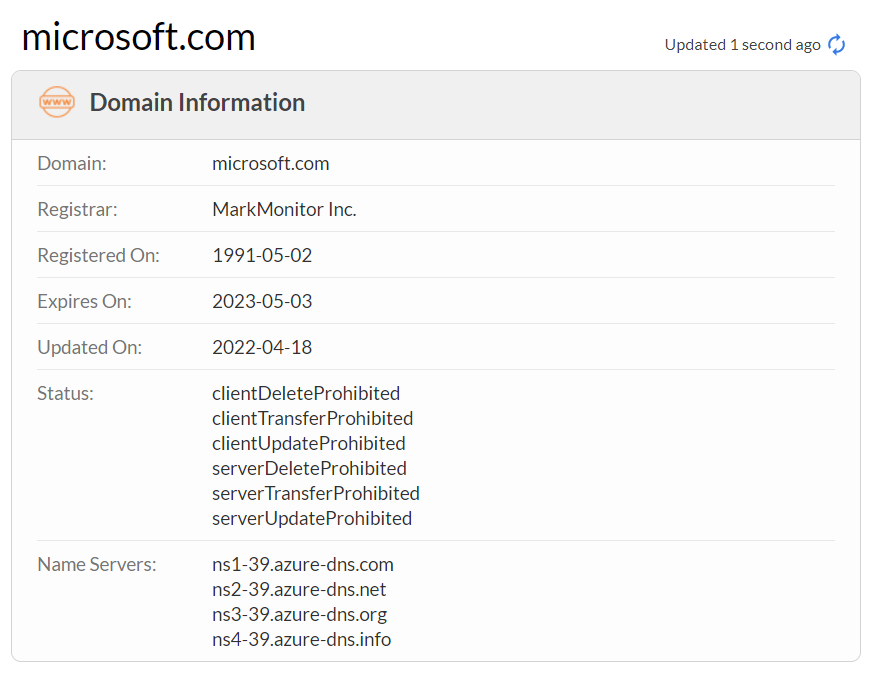Whois is a system that keeps data about registered domain names. It’s used to find details about a certain domain name or IP address, for example, the registrant’s name, the registration agency, and the end date of registration.
Internet Corporation maintains for Assigned Names and Numbers (ICANN).
Registrars are organizations that register domain names for people or businesses. They supply the data in the Whois database. When someone registers a domain name, the registrar must give specific information about the registrant, like:
- registrant name,
- address, and
- contact information.
This information is then stored in the Whois database, which the Internet Corporation maintains for Assigned Names and Numbers (ICANN).
What is the Whois Protocol and How is it Used?
Whois is a way to look up information about a domain name or IP address.
It is a basic text-based system that uses commands to ask the Whois database and get the information. A typical command is “whois domain.com” which gives you the Whois information for “domain.com.”
Web-based Whois Tools for Easily Finding Domain Name and IP Address Information
There are also web-based tools for Whois, which allow people to find information by typing in a domain name.
These tools are often included with domain registration or hosting services, making it simple to find information about a domain name or IP address.
Types of Information Available in a Whois Record
There are different types of information you can get from Whois, depending on what you’re looking for.
For example, a Whois record for a domain name usually includes the registrant’s name, the registration agency, the expiration date of the registration, and other details like the name servers linked to the domain.
Whois is also used to find information about IP addresses like the company that owns the IP range, where it’s located, and their contact information.
Privacy Concerns and the Development of Privacy Services
- Recently, worries about privacy have caused the creation of “privacy services” that let domain registrants keep their personal information hidden from the Whois database.
- These services usually substitute the registrant’s personal information with that of a proxy or forwarding service. This makes it harder for law enforcement or other groups to contact domain registrants in situations like investigating online fraud or intellectual property violations.




Understanding the Importance and Impact of WHOIS: Conclusion
In conclusion,
- Whois is a way to access information stored in a database about registered domain names, IP addresses, and related information.
- It enables people to find information about a specific domain name or IP address, such as who registered it, the registration agency, and when the registration expires.
- But, due to privacy issues, there are now “privacy services” that let domain registrants keep their personal information private and not visible in the Whois database.
Why is WHOIS so important?
Helps determine the ownership of a domain name:
WHOIS information is used to identify the person or organization that owns a specific domain name. This information can be useful for a variety of purposes, such as resolving disputes or obtaining permission to use the domain name.
Provides transparency in the domain name registration process:
WHOIS is a tool that makes information about the owner of a specific domain name publicly accessible. This transparency and accountability in the domain registration process helps to deter fraud and misuse of domain names. WHOIS information can be used to identify the registrant and contact them for various reasons, such as resolving disputes or asking for permission to use the domain name.
Facilitates communication between domain name registrants and stakeholders:
WHOIS information is a valuable tool for identifying the registrant of a particular domain name.
Furthermore, by making this information publicly available, it helps to ensure transparency and accountability in the domain name registration process.
Additionally, it can be used by other stakeholders, such as domain name registrars and intellectual property holders, to contact domain name registrants for various reasons, such as resolving disputes or asking for permission to use the domain name.
Helps find technical and administrative contacts:
WHOIS includes contact information for a domain name’s technical and administrative contacts. Whois information can be useful for troubleshooting issues with a website or resolving technical problems.
Assists in tracking down malicious activity:
Moreover WHOIS information can be used by security researchers and network administrators to track down the source of malicious activity, such as spam or malware.
Maintaining the integrity of the domain name system:
WHOIS information helps ensure that the domain name system is used fairly and responsibly. By making registration information available to the public, WHOIS helps to prevent abuse and maintain the integrity of the domain name system.
Allows for easy identification of expired or expiring domain names:
WHOIS information includes the expiration date of a domain name registration. Whois information can be useful for identifying expired or expiring domain names that may be available for re-registration.
Gives insights into website visitors’ demographics:
WHOIS information can be used to gather information about the location, industry, and size of a website’s target audience.
Enables research and analysis:
WHOIS information can be used to research and analyze the domain name system and internet trends. Whois information can include studying the growth of new top-level domains, identifying emerging trends in the domain name market, and more.
Kindly review our blog and our services on Google – Click to review

